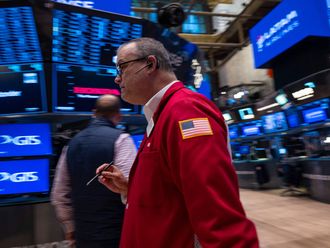Euro
The euro slid on Tuesday from a three-week peak against the dollar hit the previous day, as rekindled worries about the European banking sector prompted investors to cut risks. The euro fell 0.6 percent on the day to $1.2797 after triggering stop-loss orders in the $1.2850-60 area, as a Wall Street Journal report stoked fears about the viability of European banks by highlighting the weakness of euro zone stress tests earlier in the year. Germany's banking association said on Monday the country's 10 biggest banks may need 105 billion euros of additional capital under a revamp of banking rules designed to prevent future financial crises.
Yen
The Bank of Japan concludes its two-day policy meeting later in the day and is expected to hold off on easing monetary policy this time. The BOJ boosted its cheap loan scheme at an emergency meeting last week, bowing to government pressure for steps to protect a fragile recovery after the yen surged to a 15-year high against the dollar. The US$ could slip further, given expectations that the central bank will take no additional easing steps in the near term, while wariness over possible market intervention by Japanese authorities to rein in the yen's gains is keeping speculators cautious about aggressively taking long yen positions. The dollar index, a gauge of the US currency's performance against a basket of six major currencies, rose 0.4 percent to 82.403 rebounding from a four-week trough of 81.876 marked on Monday.
Australian stocks
Australian stocks dipped on Tuesday, dragged lower by mining shares after Prime Minister Julia Gillard's Labor party secured a majority to form the next government, ending two weeks of uncertainty. In the meanwhile the Reserve Bank of Australia as widely expected kept the interest rates unchanged at 4.5 percent at its board meeting on Tuesday. Investors will be looking for the central bank's view on the economy after recent strong domestic data. With no economic data on the global calendar, trading in the pair is likely to be driven by risk aversion flows for the rest of the day and if the equity markets continue the sell off, then AUD could be quickly fall below the 0.9100 figure as markets react the uncertainty of economic growth.
Oil
Oil extended its slide for a second day in on speculation that fuel demand will decline as the US summer peak consumption season ends. Yesterday’s Labor Day holiday in US marks the end of the peak driving season. Refiners often idle units for maintenance in September and October as gasoline demand drops and before heating-oil use increases. Last week, the US Energy Department reported that US crude inventories last week rose to the highest point since June. Motor fuel supplies are about 10 percent higher than last year.
Gold
Gold traded firm on Tuesday as economic uncertainty re-emerged in the euro zone and also because of steady demand from the jewellery segment ahead of the festive seasons in India and Middle East. Gold could advance to a record on concern among investors that some European banks may struggle to raise additional funds. Bullion is set for a 10th annual gain as investors seek to protect their wealth against financial turmoil in Europe and the prospect of slowing economic growth. The all-time high in June came amid investor concern that sovereign-debt levels in some European states were too high, and there was increased risk of default if governments were unable to issue new debt.
Source: Richcomm Global, Dubai; www.richcommglobal.com
|
Price Update
|
|
|
GOLD
|
1249.7
|
|
SILVER
|
19.9
|
|
EURO
|
1.2807
|
|
GBP
|
1.5372
|
|
YEN
|
83.85
|
|
RUPEE
|
46.69
|
|
AED / INR
|
12.715
|
|
AUD
|
0.9142
|
|
CHF
|
1.0087
|
|
CAD
|
1.0378
|
|
OIL – (WTI-Aug'10)
|
73.76
|
|
|
|
|
Date
|
September 7, 2010
|
|
Time
|
11:00:13 AM
|












